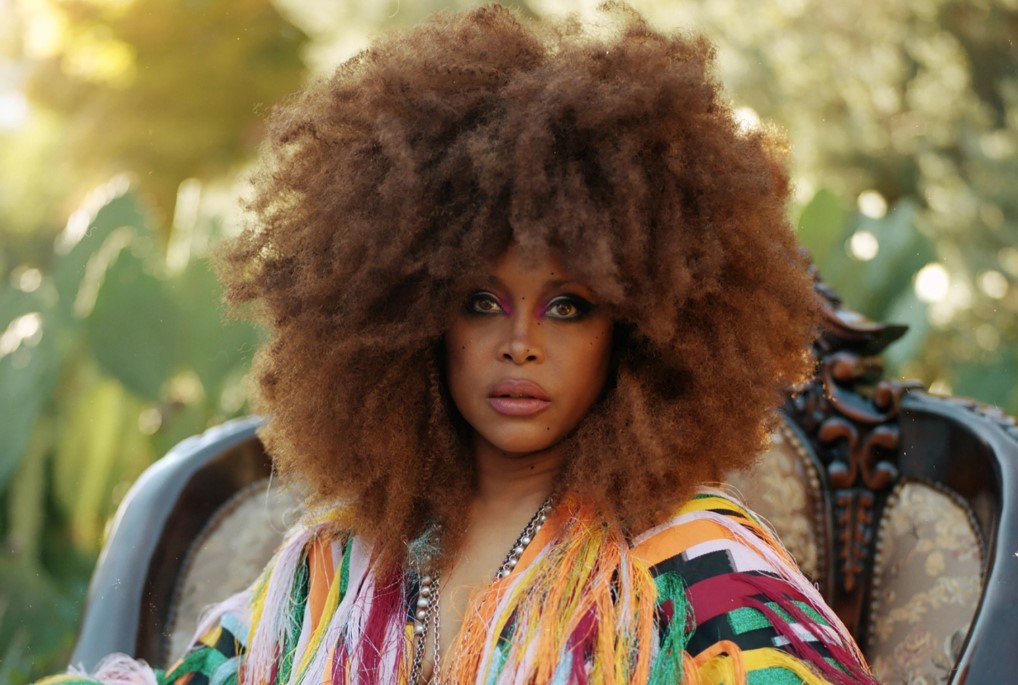
Once women reach a certain age, they know menopause is knocking on their door. Erykah Badu is getting candid about going through that process.
The 51-year-old neo-soul singer took to Instagram to share that she is gracefully going through menopause.
“Peace Peace I’m 51. let’s talk about the flowering of menopause… Blessed with The time when A QUEEN truly TAKES HER THROWN (throne),” she wrote.
Badu admits that she does miss some of the things she was able to do before going through menopause.
"I miss the thought of having lil babies in my belly and periods and womb stuff like that," she shares. "BUT I AM NOW ABLE TO SHARE MY WISDOM AND JOYFULLY GROW INTO THE GLITTER DRIPPING PHOENIX CREATED THRU THE FIRE.”
She also joked about experiencing mood swings and vasomotor symptoms, more commonly known as hot flashes.
“In other words … b***h it’s hot .don’t talk to me. lol.," Badu wrote.
In her post, Badu also offered advice for other women who are going through menopause: “It can be a lonely place if we aren’t careful. Get your nutrients (mind, body & soul) Share your feelings and thoughts with people who love you."
View this post on Instagram
RELATED: Erykah Badu: Still Going “On & On” 20+ Years Later
Tips for managing mood swings
Menopause usually occurs when a woman is in her 40s or 50s. According to the Mayo Clinic, the average age of menopause for American women is 51.
During the transition to menopause, levels of the hormone estrogen drop, causing wide-ranging changes throughout the body. This can lead to depression, irritability, fatigue, stress, forgetfulness, anxiety, and difficulty concentrating.
Not all women will experience mood swings during menopause. However, you may be at greater risk if you have:
- a history of depression
- high levels of stress
- poor physical health
RELATED: Erykah Badu at 50: Preserving The Tradition Of Doulas & Midwives
The good news, however, is that you can reduce or diminish mood swings by making the following proactive changes:
- Get aerobic exercise. According to at least one study, performing 50 minutes of aerobic training four times a week helped to alleviate vasomotor symptoms (VMS), such as night sweats. Aerobic exercise can also alleviate other menopausal symptoms, including irritability, and mood swings. Exercise and physical activity release endorphins and other feel-good chemicals in the brain, so it should be no surprise if you experience a shift in your mood after a workout. There are no shortage of workouts to choose from including running, swimming and cycling. Simply pick the time of day you are most likely to stick to a plan, and choose the exercises or activities you most enjoy.
- Eat healthy food. Eating healthy foods is certainly a mood booster. In fact, eating healthy may be just as good for your mood as it is for your body. Not sure where to start? Try a varied diet that consists of healthy foods, such as fruits, vegetables, lean protein, and fiber-filled whole grains. This will provide you with all the omega-3 fatty acids, folate, and other nutrients that you need to help improve your mood.
- Let go of stress. We all deal with stress from time to time. For those days when you are feeling more stressed than usual, gentle yoga, meditation, or quiet walks in nature may help improve your mood and decrease your stress and anxiety.
- Get enough sleep. Not getting enough sleep can add to your irritability and mood swings. Unfourtanely, sleep may be hard to get when you are tossing and turning from hot flashes and night sweats. Try going to sleep in a cool room, with your electronic devices off. It is also wise to shut off ambient lighting as well and avoid caffeine and alcohol before bed.








